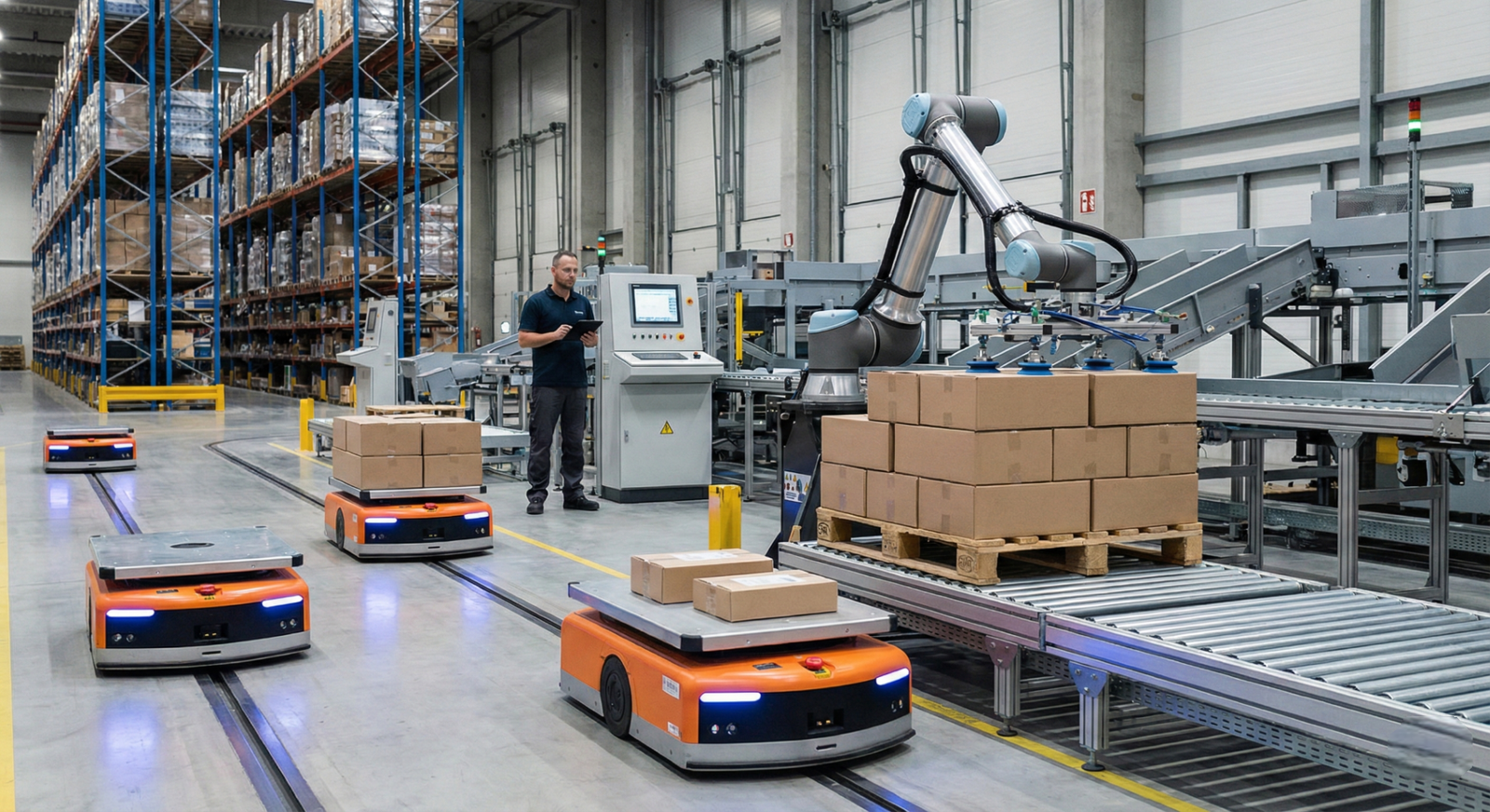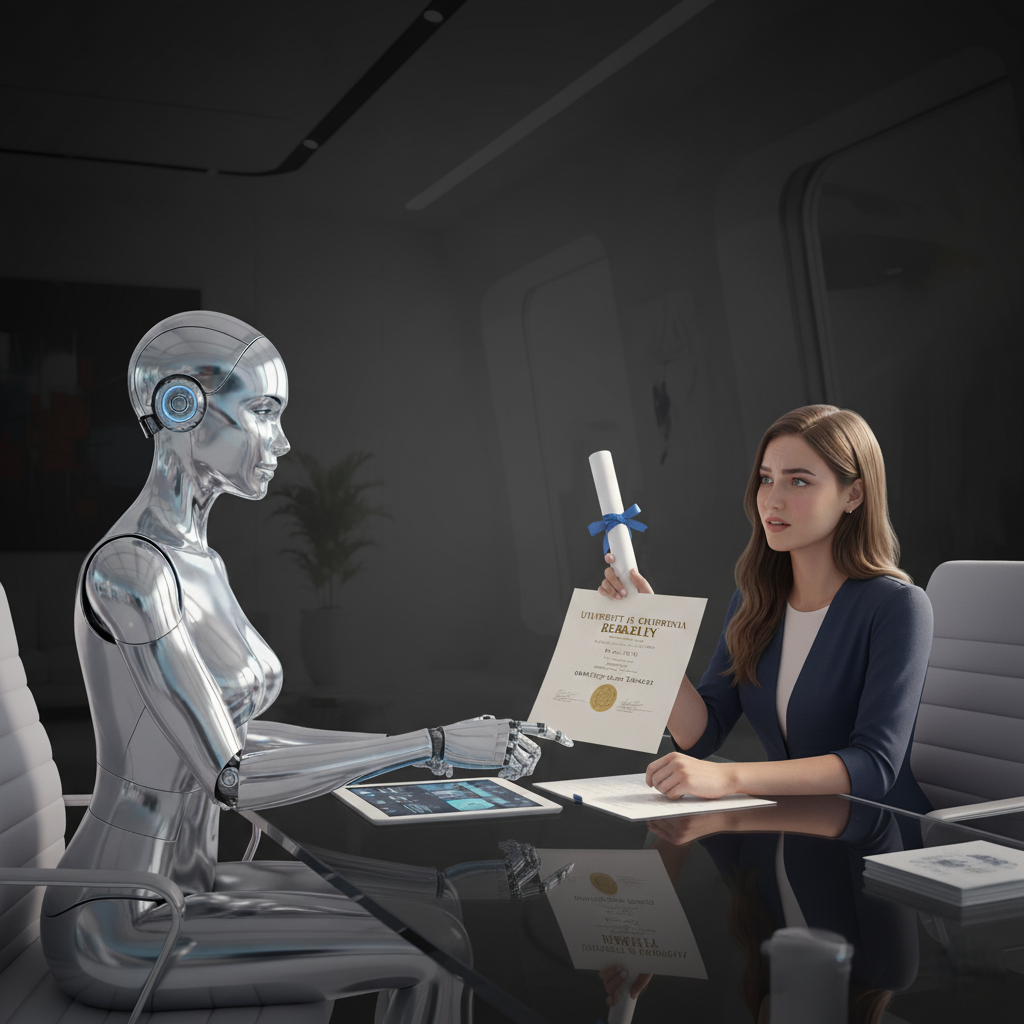Artificial intelligence (AI) is evolving fast, and one of its most promising advancements is the development of AI agents. These intelligent systems are designed to perform tasks on their own, without needing constant human input. Unlike traditional software, which follows step-by-step instructions, AI agents can learn from their environment and adapt their strategies to achieve goals. They rely on their programming and training data to make decisions.
This article explores AI agents, including how they work, where they are used, their benefits, and the exciting possibilities they bring for the future.
Key Takeaways
- AI agents are autonomous systems powered by artificial intelligence, capable of completing tasks without direct, continuous human input.
- They differ from AI assistants (like Siri or Alexa) by operating more independently toward pre-set goals.
- AI agents learn and improve over time, though their learning is limited by their design.
- They are already used in various applications, from smart home management to healthcare operations, and hold immense potential for the future.
- More advanced AI agents are being developed, including multi-agent systems that can handle more complex tasks by working together.
What are AI Agents?

AI agents are a significant advancement in AI, acting as somewhat autonomous problem solvers in the digital world. An AI agent is a system designed to perform tasks independently, without constant human intervention. They use artificial intelligence to sense their surroundings, make decisions, and take action to reach specific goals. These agents can adapt their methods and use available tools to effectively navigate their environment and achieve their objectives.
AI Agents vs. AI Assistants
AI agents and AI assistants both use AI to simplify our lives, but they operate with different levels of independence. AI assistants, such as Siri and Alexa, are reactive, waiting for your commands to perform specific tasks. They handle routine actions based on your direct instructions.
AI agents, on the other hand, are more proactive and can work independently to achieve pre-defined goals without constant input. They can assess situations, make decisions, and take action autonomously, within the parameters of their programming. Unlike assistants that simply respond to commands, AI agents can make autonomous decisions to tackle more complex problems. Think of AI assistants as helpful sidekicks, while AI agents are more like self-driving cars that navigate and make decisions on their own, within their programming constraints.
AI agents represent a major step forward in artificial intelligence. They are designed to perform tasks autonomously, learning and adapting to achieve specific goals, rather than just following fixed instructions.
How AI Agents Work

AI agents work through a combination of components and stages that allow them to operate independently and achieve specific goals.
Core Components of AI Agents
- Environment: The space or system where the AI agent operates and interacts.
- Sensors: Tools like cameras or microphones that help the agent perceive and collect data from its environment.
- Actuators: Mechanisms that allow the agent to take action, such as moving a robotic arm or displaying information on a screen.
- Decision-Making Mechanism: The system that processes data and decides what actions to take.
- Learning System: A feature that helps the agent improve over time by learning from past experiences. Reinforcement Learning (RL) is a key method here, allowing the agent to learn through trial and error.
Stages of Operation
- Goal Setting and Planning: Humans define the agent’s goals and environment. The agent then breaks these goals into smaller tasks for better efficiency.
- Reasoning and Tool Use: The agent uses tools like datasets, web searches, or APIs to gather information and make decisions.
- Execution and Adaptation: The agent carries out tasks and adapts based on user feedback. It stores past interactions to improve future performance and personalize experiences.
AI agents combine sensing, decision-making, and learning to work autonomously and achieve their goals effectively.
AI’s Role in Promoting AI Agent Development
AI is essential in advancing AI agents, making them smarter and more capable. Here’s how it helps:
- Large Language Models (LLMs): AI agents use LLMs, like GPT, to understand and respond to human language. These models allow agents to process complex information and provide tailored solutions.
- Frameworks and Tools: Tools like TensorFlow and PyTorch simplify AI agent development. They provide ready-to-use resources for building, training, and deploying AI models, saving time and effort for developers.
- Continuous Learning and Improvement: AI agents are constantly refined through testing, fine-tuning, and retraining with new data. This process helps them adapt to changes, improve performance, and stay updated with the latest information. Over time, this ensures AI agents remain effective and relevant.
AI drives the development of AI agents by providing the tools, models, and processes needed to make them smarter and more adaptable.
Real-World Examples of AI Agents

AI agents are making a big difference in many industries by automating tasks, helping with decisions, and making things more efficient. Here are some examples, grouped by what they do:
Agents that Automate Tasks
These agents handle repetitive or routine jobs, freeing up people for other work.
- Lead Management AI Agents: These agents talk to potential customers, keep track of what they do, and follow up with them, helping businesses turn leads into sales.
- Marketing AI Agents: They take care of routine tasks like email campaigns or social media posts, letting marketers focus on bigger picture strategies and creative ideas.
- Customer Support AI Agents: These agents help customers with problems, give them guidance, and use feedback to improve service.
- Human Resources AI Agents: They make HR tasks easier, like looking at job applications, answering employee questions, and bringing new hires onboard.
Agents that Help with Decisions
These agents look at data and give helpful information to support human choices.
- Financial Trading AI Agents: These agents use algorithms to help make buy or sell decisions for stocks or other investments.
- Healthcare AI Agents: They process lots of data to review claims, check documents, and spot errors, which can reduce work for doctors and staff and potentially improve patient care.
- Dynamic Pricing Systems: They change prices automatically based on demand, what competitors are charging, and market trends.
Agents that Give Recommendations
These agents learn what users like and suggest things they might be interested in.
- Personalized Content Recommendations: These agents suggest movies, products, or articles based on what users have liked before, making it easier for people to find things they enjoy.
Agents that Act on Their Own
These agents operate independently within their environment to achieve specific goals.
- Robotic Vacuum Cleaners: They automatically clean floors, navigating around obstacles.
- Home Automation AI Agents: These agents control things like lights, thermostats, and security systems in a house, making homes more convenient and saving energy.
Think of AI assistants like Siri as reactive – they wait for your command. AI agents, however, are proactive. They can analyze situations, make decisions, and take action independently, within their programmed boundaries.
Types of AI Agents
AI agents can be grouped into different types based on how they make decisions and operate. Here are the main categories:
- Simple Reflex Agents: These are the most basic type. They react to their environment using predefined rules but don’t have memory or the ability to learn. They respond only to the current situation.
- Model-Based Reflex Agents: These agents maintain an internal, often simplified, model of their environment. This allows them to consider past states and adapt to changes, making them more flexible than simple reflex agents.
- Goal-Based Agents: These agents are focused on achieving specific, programmed goals. They evaluate actions based on how well they help reach those objectives.
- Utility-Based Agents: These agents choose actions based on a “utility” score, which measures how desirable an outcome is. They aim to maximize overall benefits.
- Learning Agents: These agents improve over time by learning from experience. They use feedback and data to refine their strategies and adapt to new situations.
- Hierarchical Agents: These agents have a layered structure. High-level agents handle strategic decisions, while lower-level agents focus on specific tasks.
AI agents vary in complexity and functionality, from simple rule-based systems to advanced learning and hierarchical structures. Each type is suited to different tasks and environments.
Benefits of Using AI Agents
AI agents bring significant advantages to businesses and their customers. These intelligent systems can perceive their environment, make decisions, and act independently to achieve specific goals. Here are the key benefits:
- Improved Productivity: AI agents automate repetitive tasks, freeing up employees to focus on strategic and creative work. This streamlines operations and boosts overall efficiency.
- Reduced Costs: By automating tasks, AI agents can reduce labor costs and minimize errors. This leads to greater accuracy and less need for rework, saving time and money.
- Informed Decision-Making: AI agents process large amounts of data in real-time, assisting businesses in making more informed decisions. They analyze patterns and provide insights for better planning and strategy.
- Improved Customer Experience: AI agents offer 24/7 support, quick responses, and personalized interactions. They resolve queries instantly and provide tailored recommendations, potentially increasing customer satisfaction and loyalty.
AI agents can enhance productivity, potentially reduce costs, support more informed decision-making, and improve customer experiences, making them valuable tools for many businesses.
Challenges and Considerations
While AI agents offer great potential, they also come with challenges that need careful attention:
- Security Risks: AI agents can be targets for cyberattacks or data breaches due to their autonomous nature. Protecting sensitive information requires strong security measures and constant monitoring.
- Bias in Decision-Making: AI agents may reflect biases present in their training data, leading to unfair or discriminatory outcomes. To ensure fairness, it’s essential to use diverse, high-quality data and regularly check for and address biases.
- Lack of AI Governance: Without clear rules and accountability, it can be hard to track how AI agents are used or who is responsible for their actions. Establishing transparent governance frameworks is crucial for responsible AI use.
- Ethical Concerns: As AI agents become more advanced, they raise questions about manipulation, transparency, and misuse. Balancing innovation with ethical responsibility is key to ensuring AI benefits everyone.
While AI agents have immense potential, addressing security, bias, governance, and ethical issues is essential for their safe and fair use.
The development of AI agents offers tremendous potential, but it also raises important ethical questions. We must address issues like bias, security, and accountability to ensure these powerful tools are used responsibly.
The Future of AI Agents
AI agents are poised to transform various sectors, including marketing, healthcare, and finance.
- Growth Potential: The AI agent market is expected to grow significantly in the coming years. Rising adoption across industries and continuous technological advancements point to a bright future for AI agent technologies.
- Technological Advancements: Key areas of focus include efficiency training, multi-agent systems, and natural language processing (NLP)-based AI agents. Multi-agent systems, in particular, are expected to grow quickly as they can handle complex tasks that single agents cannot.
- Impact on Industries: AI agents will transform industries by automating tasks, improving decision-making, and enhancing customer service. They will boost productivity, potentially reduce costs, and enable new business models.
- Ethical and Societal Implications: As AI agents advance, discussions about responsible development and deployment are critical. Key concerns include bias and discrimination, accountability, and privacy. Businesses must ensure fairness by addressing biases in training data and prioritizing transparency and security.
AI agents have a bright future, but their growth must be guided by ethical considerations and a focus on positive societal impact.
Towards Artificial General Intelligence
Artificial General Intelligence (AGI) describes AI systems with thinking abilities that match or exceed human abilities across many different tasks. AGI aims to use knowledge broadly. It should adapt to new situations and use common-sense reasoning across different fields. It is a more versatile and adaptable form of intelligence. However, AGI remains a future concept and has not yet been achieved.
AI agents are independent systems that understand their surroundings and take action to reach certain aims. They learn from what they experience and get better at what they do over time. These agents are a key step toward developing AGI.
The development of AI agents helps create AI systems that can understand, learn, and reason in ways similar to human intelligence. This advancement supports the larger goal of reaching AGI.
Conclusion
AI agents have huge potential to change how we work and live. These smart systems can understand, decide, and act independently, offering businesses ways to boost productivity, improve customer service, and handle skill shortages. They can help automate tasks, make things more efficient, and drive innovation.
But, we need to develop AI responsibly. It’s important to consider ethical issues like job losses and misuse to make sure AI benefits everyone and doesn’t cause problems. Balancing innovation with responsibility will help create a future where AI has a positive and fair impact.
Frequently Asked Questions (FAQ)
How are AI agents different from regular computer programs?
Regular computer programs follow a fixed set of instructions, step-by-step. AI agents, on the other hand, are designed to operate more independently. They can learn from their experiences and adapt their actions to achieve their goals, within the parameters of their programming. They make decisions, whereas regular programs simply execute commands.
Can AI agents replace human workers?
While AI agents can automate many tasks, they are more likely to augment human capabilities rather than completely replace human workers. They can handle repetitive or data-heavy tasks, freeing up humans to focus on more creative, strategic, and interpersonal aspects of their work. The focus should be on how humans and AI agents can collaborate effectively.
What are the ethical concerns surrounding AI agents?
Some ethical concerns include potential job displacement due to automation, bias in AI algorithms leading to unfair outcomes, security risks related to autonomous systems, and the need for transparency and accountability in AI decision-making. It’s crucial to address these concerns proactively to ensure responsible AI development.
How secure are AI agents?
The security of AI agents depends on several factors, including the design of the agent, the environment it operates in, and the security measures implemented. Like any software system, AI agents can be vulnerable to cyberattacks. Strong security practices are essential to protect AI agents and the data they handle.
What is the future of AI agents?
The future of AI agents is promising. We can expect to see more sophisticated AI agents capable of handling increasingly complex tasks across various industries. Developments in areas like multi-agent systems and natural language processing will further enhance their capabilities. However, it’s crucial to prioritize ethical considerations and responsible development as AI agent technology advances.
What is the difference between AI agents and machine learning?
Machine learning is a subset of AI that focuses on enabling systems to learn from data without explicit programming. AI agents can utilize machine learning techniques to improve their performance over time. Machine learning is a tool that AI agents can use, but AI agents encompass a broader range of functionalities beyond just learning.
What are multi-agent systems?
Multi-agent systems involve multiple AI agents working together to achieve a common goal. These agents can communicate and coordinate with each other, enabling them to tackle more complex problems that a single agent might not be able to solve effectively. Multi-agent systems are a significant area of research in AI.
Articles referenced:
Understanding AI Agents: A Beginner’s Guide – domo
AI Agents vs. AI Assistants – ibm
What are AI Agents? – Artificial Intelligence – aws.amazon
Intelligent Agent | Agents in AI – Tpoint Tech – tpointtech
Intelligent agent – Wikipedia – wikipedia
Components of AI Agents: Building, Tools | Aitech.studio – aitech
36 Real-World Examples of AI Agents – botpress
AI agents — what they are, and how they’ll change the way we work – Source – news.microsoft
What Are AI Agents? | IBM – ibm
Types of AI agents, their benefits and examples | Probe CX – probecx
Mitigating the Top 10 Vulnerabilities in AI Agents – xenonstack
The Road to AGI: Where Do We Stand, and Why Is Everyone Talking About AI Agents? | Peter Zwyssig – linkedin





